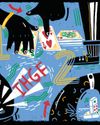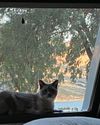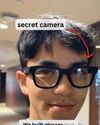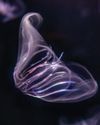
More of the United States lies beneath the ocean than above it. No, that's not because global warming has caused sea levels to rise catastrophically. That's the way it has been since long before the country was known as the United States. What's more, this Submerged America, as it's sometimes called, is not some forsaken place. It's filled with vibrant animals, gardens, forests, mountains, volcanoes, mesas, and canyons.
The United States' Exclusive Economic Zone extends its borders well into the ocean. It surrounds US lands from American Samoa in the Pacific Ocean and Alaska's Aleutian Islands in the Bering Sea to the Atlantic seaboard in the east and Puerto Rico in the Caribbean Sea. Only a fraction of Submerged America has been explored by humans; just half has been mapped using sonar. We have better and more complete images of Mars, Venus, and the Moon. In fact, less than a quarter of the world's ocean floor has been mapped using sonar. This technology does an excellent job at revealing what lies beneath our planet's watery veil. And thanks to an initiative launched in 2017, the secrets hidden on the seafloor may soon be discovered.
The Ocean Decade
Seabed 2030 is an international effort to map the world's seafloor by the year 2030. It aims to fulfill one of the 10 global challenges set out by the United Nations in 2017. The UN declared the 2020s the "Ocean Decade." One objective is to create an ocean map that provides information "for exploring, discovering, and visualizing past, current, and future ocean conditions."
Such a map couldn't come soon enough. Between climate change, microplastic pollution, and companies clamoring to begin deepsea mining for rare metals, knowing what the seafloor looks like now is critical. A map will help us understand how the sea is changing and how such changes might affect people.
Esta historia es de la edición July/August 2023 de Muse Science Magazine for Kids.
Comience su prueba gratuita de Magzter GOLD de 7 días para acceder a miles de historias premium seleccionadas y a más de 9,000 revistas y periódicos.
Ya eres suscriptor ? Conectar
Esta historia es de la edición July/August 2023 de Muse Science Magazine for Kids.
Comience su prueba gratuita de Magzter GOLD de 7 días para acceder a miles de historias premium seleccionadas y a más de 9,000 revistas y periódicos.
Ya eres suscriptor? Conectar

HOUSE OF CARDS
TRY THE PERFECT EXPERIMENT—AND THEN REFLECT ON HOW IT WENT.

ACCIDENTALLY Delicious
Have you ever been really hungry, but there wasn't much to eat in your kitchen? Did you throw together a bunch of stuff you had on hand and were pleasantly surprised when it tasted good?

IS YOUR SOCIAL MEDIA FEED TOO PERFECT?
EVERYONE'S LIFE CAN APPEAR PERFECT ON SOCIAL MEDIA. On YouTube, Instagram, Snapchat, and similar apps, people tend to share their happiest, most picturesque moments. They carefully compose any text to get the message just right. They use filters and enhancements to glam up images and videos. The app sorts the posts with the most likes and comments to the top. The end result? All you see of others' lives is the best of the best.

Art ALERT!
THE CASE OF THE MASTERPIECE THAT WASN'T

MARYAM ZARINGHALAM
SCIENCE POLICY FELLOW AND WRITER

Lost Cat Treks More Than 800 Miles to Get Home
Rayne Beau (pronounced RANE-BO, as in \"rainbow\") is a two-year-old Siamese cat.

EASY AS ABC
But in number theory, well, it's complicated.

That Wanaka Tree Gets a Companion
\"THAT WANAKA TREE,\" AS IT'S CALLED, IS A FAMOUS WILLOW TREE THAT GROWS OUT OF LAKE WANAKA ON THE SOUTH ISLAND OF NEW ZEALAND.

Two College Students Devise Smart Glasses That Can ID People
YOU'RE WAITING FOR THE SUBWAY WITH A COUPLE OF YOUR FRIENDS.

Two Comb Jellies Can Fuse Their Bodies Together to Become One
COMB JELLIES ARE GELATIN-LIKE AND MOSTLY SEETHROUGH INVERTEBRATES, OR ANIMALS WITHOUT A BACKBONE, THAT FLOAT IN THE OCEAN NEAR SHORE.